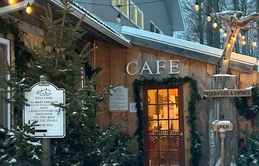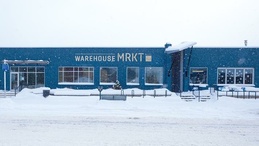Ballot Questions To Question
Oct. 21, 2016
Candidates and proposals and millages, oh my.
If you live in Traverse City, or outside the city but in Grand Traverse County, you will be making choices beyond candidates on November 8. There are three ballot proposals for the voters inside the city limits and an additional two millage questions for all county residents.
All three ballot proposals in Traverse City were birthed by the plans to erect a ninestory building on Front Street. Opponents circulated petitions, many of which were invalidated by an odd technicality requiring an affidavit be attached to each petition attesting to the number of signatures.
Proposal 1 will change that and, instead, require the city clerk to provide a simple receipt for the number of signatures submitted. It’s common sense housekeeping and removes an obstacle for those trying to place an initiative on the ballot.
Proposal 2 will eliminate the illegal requirement that petition circulators be adult residents of Traverse City. It contravenes existing state law which says petition circulators must be 18 years of age and American citizens. As a result, the current rule in Traverse City is not, will not, and cannot be enforced. Proposal 2 simply makes Traverse City’s rules conform to state law.
Proposal 3 is not simple housekeeping. It would change the city charter to prohibit any building taller than 60 feet go up without a public vote.
Changing the city charter requires voters to affirm their desire to make the change so, to ban tall buildings, the proposal requires a "yes" vote. A "no" vote leaves the charter as is and would allow taller buildings.
We arrived at this point when those opposing tall buildings, bedeviled by the petition signature rules, went to court. Circuit Court Judge Phillip Rodgers determined the city had not done its due diligence regarding infrastructure and subsidies before it had approved the plans.
In the meantime, valid signatures were gathered and submitted, and the issue is now on the ballot as a charter amendment because state law prohibits simple zoning changes by referendum.
There are conflicting opinions as to whether or not this vote can withstand the inevitable legal challenges, but it certainly will end up back in court regardless of the election day results.
Just remember, if you don’t want tall buildings, you’ll need to vote "yes"; if you do want them, a "no" vote is required.
County residents also will confront a pair of seemingly innocuous millage requests. The first would extend an already existing millage for roads and their maintenance; the second, a new millage, would fund the Department of Veteran Affairs.
Unfortunately, nothing about Grand Traverse County government is innocuous these days. The millage we recently passed for the Commission on Aging (COA) is a case in point. Presumably, most voters believed the money would go to the existing Commission on Aging to continue and expand its work.
The County Board of Supervisors, which actually controls the COA, is not so sure. County Attorney Bob Cooney says the money raised by the millage must be used to provide services to those 60 and older but, beyond that, the county board can make decisions.
It’s not clear the board will change anything but members are hinting at a more medical focus for COA services and other structural changes.
All of which complicates the next millage issues. The money for roads seems safe enough. It’s never a good idea for politicians to take money away from roads in this part of the state. The money for veterans’ services is less clear. And this isn’t tons of extra money for veterans; it simply will replace money coming from the county’s general fund, not add to it.
In other words, it’s a millage, the primary purpose of which is to relieve the county budget of the expense. The Department of Veteran affairs won’t be autonomous, but rather, another subset of the county board. As the board continues to examine departmental structures and budgets, there is no way to predict any outcome for any department.
Here’s an interesting aside: Millage money that’s dedicated to a specific purpose, like roads or seniors or the library, has to be shared with others – quite a few others, in fact.
If Grand Traverse County voters pass the road and veterans millages, by law, a share of that money will go to the downtown development authorities of Traverse City, Interlochen, Kingsley, and the Village of Fife Lake; the Grand Traverse County Brownfield Redevelopment Authority; and the Grand Traverse County Land Bank Authority. They don’t take big chunks, but when a millage claims to raise $500,000 for some purpose, it’s really $500,000 less the money being shared with half a dozen other organizations.
At the very least, the ballot questions will take our minds off the dreadful candidate contests for a few blissful, if brief, moments. We appreciate that.
Trending

Welcoming the Winter Solstice: Rituals & Events for the Shortest Day of the Year
With the winter solstice quickly approaching, it’s hard not to notice how dark each day feels. Astronomically, this is… Read More >>
Camp Greilick Now Open!
It’s been a long road for the century-old Camp Greilick, which, after several dormant years, was acquired by Grand Tra… Read More >>
Men and Ugly Sweaters
Those two things don’t always go together, but on Dec. 19, you’ll see both out and about in Petoskey and Harbor … Read More >>


